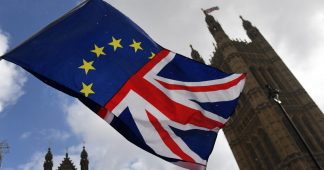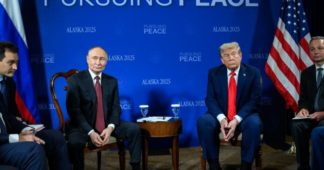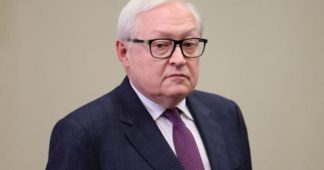By William Mallinson
Trump’s recent visit to the United Kingdom is completely unprecedented: no serving American President has ever visited Britain twice on a state visit. The investment agreements reached with Microsoft and Google, and building more nuclear reactors in Britain, could gave been reached without the expense of a lavish state visit and the royal family laying on a huge banquet. A press release would have sufficed.
So why do Washington and London wish to show the world, the EU in particular, that the so-called special relationship is again in full swing? One reason is to downplay recent embarrassing moments, as when Vice President Vance criticised Britain’s attitude towards free speech. Although he also criticised the EU, he spent more time on Britain’s attitude, hence the sudden need to show the EU that the US-British relationship is nevertheless particularly special. Trump is of course not popular with the British people as a whole, hence his being kept off the streets during his visit. But his media soundbites speak for themselves: ‘The ties between our countries are priceless; the relationship is a beautiful inheritance and the two governments are making those ties closer than ever before’.
To better understand the real reasons behind the visit, rather than the braggadocio, only history explains: British-American relations were severely damaged in the wake of the British Burgess-Maclean-Philby defections to Moscow in 1951 and 1963 respectively, by British Prime Minister Wilson’s refusal to support the US militarily in Vietnam, and by Prime Minister Edward Heath’s refusal to allow the US to use the British bases on Cyprus to help Israel in the Yom Kippur War. It was actually Heinz Kissinger who re-established the special relationship after his Gaullist antagonist Heath fell from power in 1974. Then, under Margaret Thatcher, there was a major love-in with President Reagan, surpassed only by the Bush-Blair Iraq love-in.
As French President de Gaulle had always said, Britain in the European Economic Community would have served as America’s Trojan Horse. Once Britain joined Europe, she found herself in a tug-of-love between Washington and Brussels, nevertheless always opting for Washington at the end of the day, as with the Iraq war.
But then came Brexit and Washington’s concomitantly losing its European headquarters, namely London. NATO’s war against Russia, and Trump’s studiously vague attitude, including a meeting with Putin in Alaska, and European anger and envy, demonstrated the current flux in Western inter-state relations, with the French, British and Germans competing for anti-Russian prominence, while Hungary and Slovakia disagree.
Behind all this lies the most important reason: Britain and America’s traditional opposition to a European army completely independent of NATO, and the struggle for the mastery of Europe. A truly independent EU is anathema to the Anglo-Saxons, and always has been, since (as with de Gaulle) there is always the possibility of good relations between a Berlin -led Europe and Moscow. Ever since the invention of the term ‘geopolitics’, and even before, Britain has worked against good relations between Moscow and Berlin, since that would weaken British influence and strengthen Russian relations with Europe. Trump’s visit has put paid to any possibility of an independent EU army, hence the soft option of an anti-Russian coalition of the willing’, obviously under Anglo-Saxon domination. Apart from that, the visit provided a useful distraction for the British government, already reeling from a series of resignation scandals. The visit could keep the government in power for a few months longer than would otherwise have been the case.
Finally, there has been speculation that an important motive for the visit was for Trump to convince Starmer to cancel his announcement that London would soon recognise a Palestinian state, so as to continue to use the bases on Cyprus to help Israel with its genocide against the Palestinians. If London does, that will surely detract from the so-called ‘special relationship’. Let us see if London caves in to the Zionists, and reneges on its commitment.
Athens, 19 September 2025
We remind our readers that publication of articles on our site does not mean that we agree with what is written. Our policy is to publish anything which we consider of interest, so as to assist our readers in forming their opinions. Sometimes we even publish articles with which we totally disagree, since we believe it is important for our readers to be informed on as wide a spectrum of views as possible.











